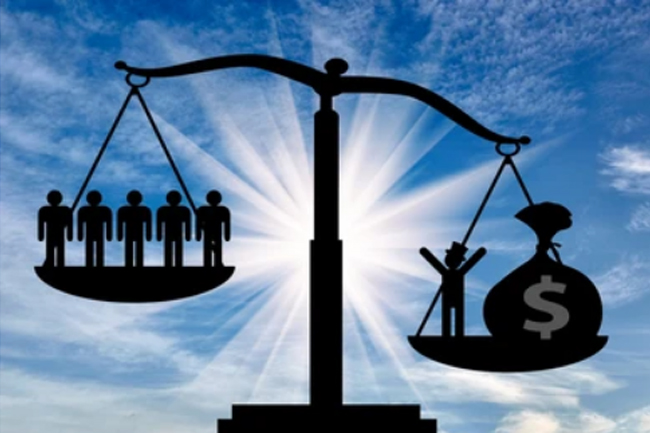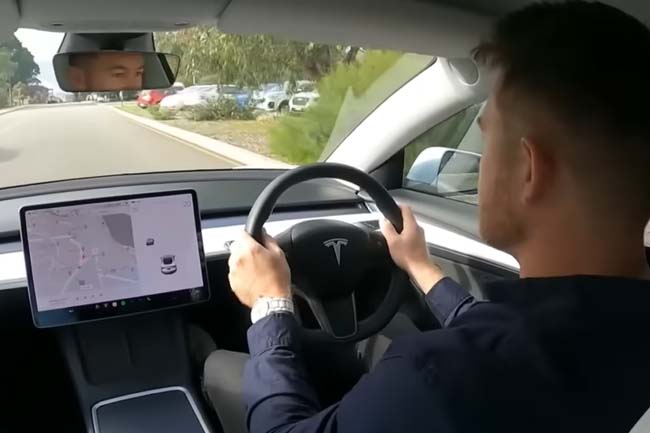While the EU makes every effort to reach carbon emission reductions to save the planet, Australia still needs to catch up, writes Dr David Shearman.
RECENTLY, a ten-year-old block of 131 flats in Sydney, evacuated some weeks ago because of structural cracks, became the subject of an engineer’s report which said it was moving in a ‘downward motion’. The UK is well aware of such failures of regulation and government with the Grenfell Tower fire cladding. They epitomise the increasingly inept governance in both nations.
Nevertheless, despite the three years of Brexit chaos in the UK, matched by three years of climate policy chaos in Australia which remains the hallmark of the re-elected Government, the similarity ends there.
The difference is that the UK has established and esteemed institutions and a public service which can provide sound advice beyond the chaos. Australia’s independent experts are rarely consulted and its public service is hollowed out by political appointments.
Pollution has been encroaching on our planet's lifespan for years. Carbon neutrality can take us one step closer to a more sustainable life. #CarbonNeutrality #Environmenthttps://t.co/kH4XUujlM8
— Arjun Ranga (@arjunranga) July 5, 2019
Carbon neutrality by 2050
As a result, The UK announcement of carbon neutrality by 2050 was a beacon of light in a world dimmed by the climate emergency.
Lord Deben John Gummer, Chairperson of the independent Committee on Climate Change formed in 2008, said:
“Our report concluded that Net Zero is necessary, feasible and cost effective. This is a major commitment for the coming decades… [we] will now move to the task of providing advice on the detailed path to Net Zero.”
The Australian Government has a target of 26-28 per cent reduction of emissions by 2030 which it says will be reached “in a canter” because of renewable energy development. This is not taken seriously by experts because of the Government’s poor track record on climate change and their fudging of domestic emission figures.
Australia has the Climate Change Authority, a statutory agency established under the Climate Change Authority Act 2011, which in 2015 recommenced greater reductions in emissions than the Government would countenance and was then in 2016 subject to political influence with six new members appointed by the Government. Subsequently, no climate scientist remained on the committee. It became “dominated by people who want action, but not too much action”.
In the UK, John Gummer said:France and Britain race for carbon neutrality by 2050 - Energy Post. And what is Australia’s position? Still asleep at the wheel- https://t.co/tF7tzQpLtI
— Chris Lockhart Smith (@ecodweller) June 28, 2019
“This step (carbon neutrality) will send a strong signal to other countries to follow suit – and will help to drive the global effort to tackle climate change required by the Paris Agreement.”
If a few recalcitrant members of the EU can be brought into line, the UK and Europe could together offer leadership as a powerful economic force.
In Australia, domestic use and export of fossil fuel energy are currently dissociated from the Paris Agreement. There is intent to develop several huge gas fields and in just one of these in Western Australia, the domestic emissions are expected to be 40-75 per cent above what Western Australia’s energy sector could emit in order to comply with the Paris Agreement.
But for Australia to promote the beneficial export of gas to reduce world emissions is deceitful.
At the United Nations COP24 climate change conference in December 2018, then Environment Minister Melissa Price promoted Australia’s gas expansion plans:
“Australia is using our natural resources to provide the low emissions fuels of the future. Our Liquefied Natural gas (LNG) exports could save importing countries around 130 million tonnes of carbon dioxide equivalent a year…”
In June this year, the new Energy Minister, Angus Taylor, has reiterated this misinformation:
“Australia’s total LNG exports have the potential to lower emissions in importing countries by around 148 Mt CO2-e in 2018 by displacing coal consumption in those countries.”
Can Australia get serious about carbon neutrality? - DatacenterDynamics https://t.co/Z9ui5YXLUd... https://t.co/0q92RaYL6G pic.twitter.com/IZ9oJePgfJ
— Candice Rodriguez (@dicerod) June 26, 2019
Analysis of the emissions data shows these statements to be wrong, for gas exports largely displace exports from other countries and crucially they do not account for the full life cycle of methane emissions during the stages of production and export. Consequently, the emission profile is little different to that of coal.
In conclusion, despite confrontation over Brexit, the UK and Europe have been able to recognise the increasing evidence of 3-4°C degree warming; Australia has not.
Climate leadership
In a previous article, it was pointed out that in Australia we could not wait another three years to fulfil a grossly inadequate emission target in a dubious “canter” if we are to meet our obligations as a rich, secure country able to do much more for itself and world humanity.
Our position as a climate freeloader is not yet fully understood in countries committed to leadership and action, the Australian media is not widely read and much fails to explain our abysmal performance. Australia’s institutions could do much more through their international counterparts to bring pressure on our governments. The standing of our scientific organisations enables them to influence their counterparts; in the political sphere, the increasing influence of the Green parties in European countries is an important avenue. Concerned experts and organisations must consider publishing in the European media.
As the climate emergency bites into society, the UK and Europe are currently alone in demonstrating leadership but are gaining influence.
Currently, international protocol adheres to non-interference in the domestic affairs of another country; this nicety is justifiably broken when that country’s actions affect the security and viability of other countries. The Australian Government works only on economic ideology; ultimately, pressure will come to be applied on trade and economic preferences.
Consumers are increasingly asking for it and Meat and Livestock Australia says it's achievable — carbon neutrality by 2030. More on @abclandline Sunday https://t.co/mEPxMh6Vpe
— ABC Rural (@ABCRural) June 7, 2019
In February, the EU said a binding reference to the Paris Agreement would be “needed in all EU trade agreements” from now on, noting that it had been included in a deal with Japan.
Subsequently, President Macron indicated he would not sign the Mercosur trade agreement with four South American nations if Brazil refused to sign up to Paris. Brazil has complied and Mercosur has been signed. However, deforestation in the Amazon is accelerating in Brazil at the instigation President Bolsonaro’s drive for development and further pressure from the EU will be required.
The EU also showed leadership when, apart from a recalcitrant U.S., the G20 nations reaffirmed their commitment to the Paris Agreement.
In June, Australia’s emissions were questioned during a round of United Nations climate change talks held in Bonn and the defence of our position was threadbare — one inadequate slide.
A further avenue for leadership from the UK and Europe would be to encourage the COP24 meetings to prepare for a revised Paris Agreement with a formula for responsibility on Scope 3 emissions produced by wealthy exporting countries. This would take into account of the IMF report on global fossil fuel subsidies of $5.2 trillion, with $29 billion in Australia — the latter mainly supporting coal and gas exports.
Three years is a long time and ‘time and tide wait for no man’ (and climate change).
'Major problems': David Attenborough slams Australia over climate change https://t.co/NmwDXG0ojS via @Y7News So we vote for 'Ministers' of parliament, who put climate change at the end of their agenda.
— Deborah Matcham (@deborah_matcham) July 10, 2019
Who let Morrison get away with carbon emission the Paris agreement to Adani?
Dr David Shearman is a founder of Doctors for the Environment Australia and Emeritus Professor of Medicine at Adelaide University.
Australia Doing Little to Combat Climate Change, Meet Paris Agreement https://t.co/6j9NXQH5cN
— Akmal Shafi (@akmal1967) July 9, 2019
 This work is licensed under a Creative Commons Attribution-NonCommercial-NoDerivs 3.0 Australia License
This work is licensed under a Creative Commons Attribution-NonCommercial-NoDerivs 3.0 Australia License
Support independent journalism Subscribe to IA.












